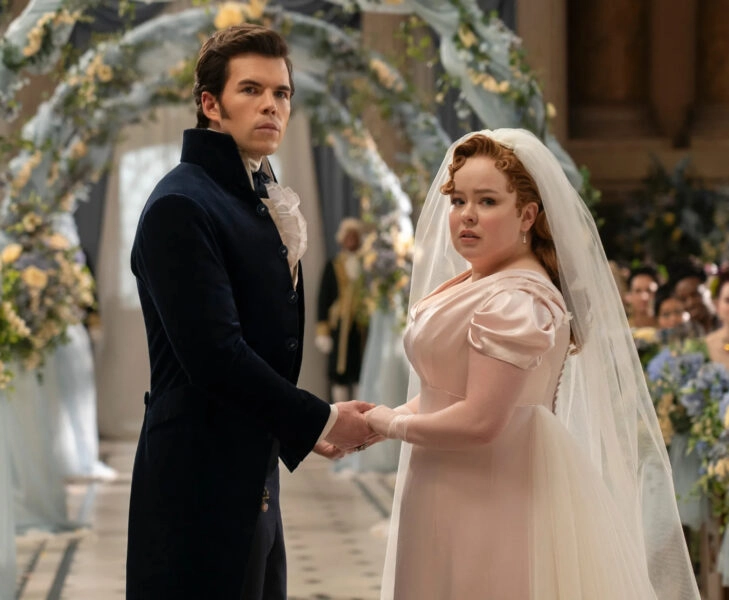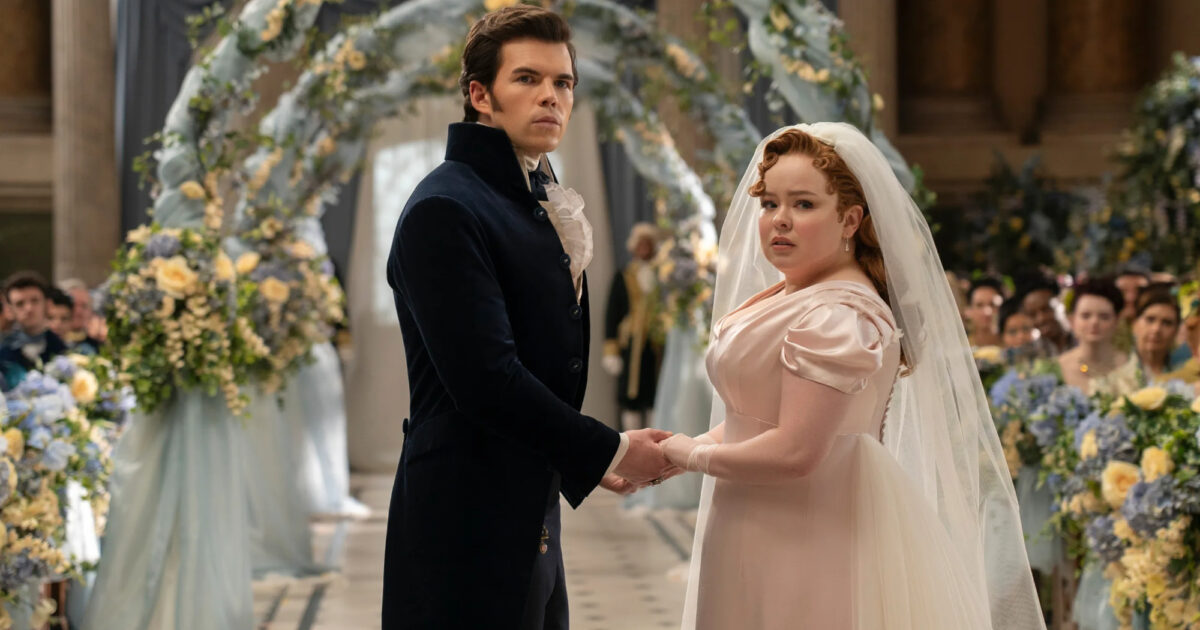
Misogamy is the rejection or aversion to marriage. PHOTO: Scene from The Bridgertons.
Mind
Misogamy is the rejection or aversion to marriage, a formality that convinces fewer and fewer couples.
By Sara Flamenco
October 8, 2024 / 1:57 p.m.
Series like The Bridgertons show the importance given to marriage in the 19th century, especially for women. Importance that has been gradually declining until reaching the present day, where fewer and fewer people consider it essential to formally seal their destiny along with that of another person. According to the latest report Transformation and crisis of the marriage institution in Spainprepared by the CEU Demographic Observatory (with data from the INE and Eurostat), around 50% of young and middle-aged Spaniards would never get marriedand a similar percentage of Spanish marriages end in divorce.
The idea of linking marriage to a lavish celebration puts off more and more couples, who are usually more concerned about paying the rent than a wedding dress. That is why many others choose not to celebrate the moment of union, and simply choose to legalize the situation to keep yourself covered against possible eventualities.
In this fall, the religious marriages They are the ones that have suffered the greatest setback: if in 1980 96% of marriages were celebrated by the Church, today they are less than 22%. Added to this are people who recognize that they would not get married for the world, something known as misogamy.
What is misogamy?
Misogamy is rejection or aversion towards marriage. This term dates back to the mid-17th century and comes from the Greek misos, which means hatred, and gamos, which means marriage. However, this is not a hatred of marriage itself, but rather a aversion to the institution of marriage and the traditional roles associated with it. Misogamous people, in general, prefer relationships free of formal and legal commitments. They value independence, autonomy and flexibility that offers a non-marital relationship.
But a rejection of marriage does not imply a rejection of commitment. This is how psychologist Beatriz Galván explains it: «People can decide not to marry for different reasons, such as previous experiences, personal beliefs or preference for non-traditional relationships. The commitment It can manifest itself in different ways, such as having a stable and long-lasting relationship. without the need to formalize it through marriage. “Marriage is one of the many ways to express commitment, and its absence does not automatically imply rejection,” he says.
Today, with changing family structures and the decline in popularity of marriage, misogamy can be seen more as a life choice which more and more people opt for rather than as a marginal position. Because, although it is defined as hatred, there are those who practice this way of living simply because They do not want to commit themselves legally.
The reasons behind misogamy
People who experience misogamy may have multiple reasons for his rejection of marriage. For example, there are those who see the formal union as a restriction of freedom that limits individual options and aspirations. But this does not mean that they reject romantic relationships or living with a partner. In fact, they can have stable relationships, but they prefer do not formalize them through marriage. Other people may have had negative experiences in previous relationships or having observed the difficulties and conflicts that marriage can bring, especially at the legal level and distribution of assets. «If we have lived difficult or traumatic situations In previous relationships, these experiences can leave emotional traces that will affect the way we relate to others. They can generate emotional disturbances, difficulties in relating, fear to commitment“, distrust…”, indicates Galván.
Not to mention, of course, the change of perspective regarding the institution of marriage. The series The Bridgertons has been mentioned as an example of the importance that has traditionally been given to marriage. And it can also serve to illustrate that in past times getting married was the only way a woman had to leave her house and to be free (although in reality she went from being controlled by her father to being controlled by her husband). Fortunately this has changed, and the fact that today quite a few women oppose marriage It refers more to the desire to revalidate their own freedom and independence.
And we’re not just talking about the greater number of people who choose not to get married. We also live in a time when the number of divorces is also higher. «Expectations about relationships have changed; many people search greater emotional and personal satisfaction in their relationship. In some cases, when faced with difficulties or conflicts in the relationship, this aspect can lead to opt for separation before work in the relationship,” says Beatriz Galván. But of course, each case is unique. «The increase in the number of divorces may also be affected by greater social acceptance of divorce or for the economic independence of the different members of the couple,” he concludes.
